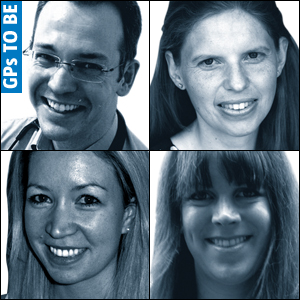When was the last time you felt appreciated?

Having spent the last three years of GP training being forced to ‘reflect’ so frequently that people now look at me while trying to squeeze their zits, last week I found myself reading about Maslow’s hierarchy of needs.
Abraham Maslow proposed that there exists a hierarchy of needs we must meet in order to motivate ourselves and develop as human beings.
In order to achieve the higher needs, we must first fulfil the fundamental needs that form the base of a hierarchical pyramid. From bottom to top then, we are motivated to meet needs related to physiology, safety, love and belonging, esteem and self-actualisation.
What I think he is trying to say is that it’s pointless faffing about trying to ‘find yourself’ if you haven’t figured out which hole your food goes in.
I started to wonder how this pyramid relates to being a GP – or a doctor in general. In order to be the best we can be we need to have been taught basics at medical school, and put this into practice to become safe doctors in the early years. Once the ‘physiological’ needs have been taught, we can feel safe in our practice and in our job progression and satisfaction. These seem easy to obtain.
But do you feel loved?
All too often it feels like we work in a culture of negativity. We receive complaints, incident forms, damnation from the CQC’s ‘intelligent’ monitoring, and have to reflect on how to do better for appraisal and revalidation. Outside the system we hear about failures in the service and greedy healthcare workers asking for an extra 1%, which still amounts to a pay-cut in real terms. ‘Critical care’ suddenly takes on a whole new meaning.
In the words of neo-philosophic hip-hop troupe the Black Eyed Peas, ‘Where is the love?’.
I would encourage you to think of the last time someone showed you real appreciation for the work that you do. It could have come from a patient or a colleague, or maybe even from yourself.
And when was the last time you showed appreciation to someone else?
Unless the answers to both of these are ‘very recently’, ask yourself how you can continue to fulfil your potential in this profession without meeting this need. (I suspect practices receive more complaints than thank you cards).
The stress doctors feel can be enormous. I make no apology for raising this, acknowledging other jobs carry their own stress too. More than twice as many doctors commit suicide than the general population, and suicide rates among our profession are more prevalent than in any other job. To stay safe and prevent burnout, being appreciated is important.
Practically, I prescribe this: print out Maslow’s hierarchy, then highlight ‘love and belonging’. Then throw it away because you were never going to look at it anyway, and send a colleague an email thanking them for something they did well. Help someone up Maslow’s hierarchy, and in turn someone will help you.
My next blog? Why I’m not allowed to do video consultations for a month after reading about Freud’s theory of psychosexual development.
Dr Danny Chapman is a GPST3 in Exeter.









